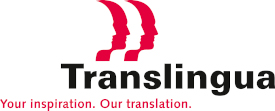When do you need a legalised translation?
You need a legalised translation when you present a document to a court, a public or government office, a university or other official body. A signature and stamp confirm that the text is a complete and correct translation of the original. This may be relevant for the following documents:
- Employment reference
- Contract
- Certificate
- Diploma
- Passport
- Will
- Curriculum vitae
- Articles of association
- Minutes of a meeting
If you are not sure whether a legalised translation is required, ask the institution for which you need the text in a different language.
When is an apostille needed?
An apostille is needed when the origin of an official document is required in another country. This may apply to the following documents:
- Commercial register extract
- Extract from the judicial record
- Notarial deed
- Court ruling
- Administrative ruling
Many countries all over the world are members of the Hague Convention, which is also often referred to as the HCCH 1961 Apostille Convention. This facilitates the recognition of the origin of official documents for member states: there is no need to make an appointment with a consulate or embassy.
Translingua is your partner for legalised translations and apostilles.
Translingua guarantees the accuracy and completeness of the translation and, as a translation company registered in the Swiss Commercial Register, can have its signature on the certification authenticated by a notary public. Our legalised, or authenticated, translations are recognised by virtually all Swiss authorities. If you need an apostille, we not only handle the notarial authentication but can also (as an option) attend the state chancellery, which confirms the legal validity of the notarised signature.
Please note that we only offer legalised translations to corporate clients. You can find further information about legalised translations at the FDFA, or ask us directly.
